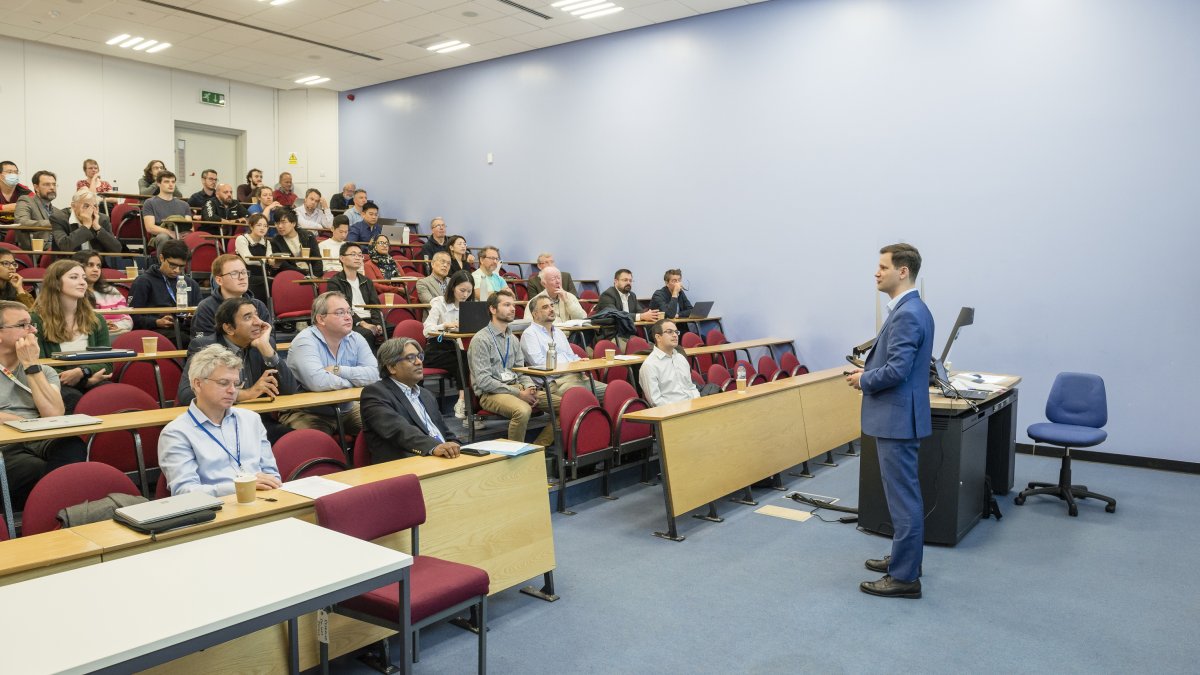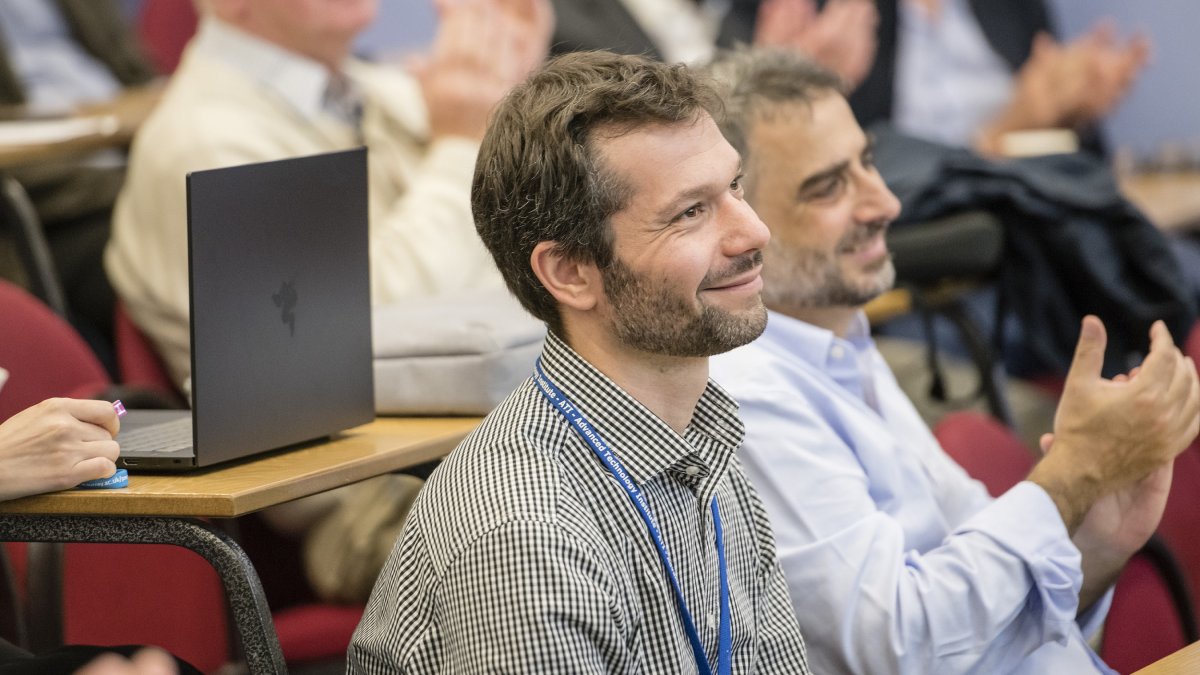Advanced Technology Institute celebrates 20th anniversary
Surrey’s Advanced Technology Institute (ATI), the home of world-leading research and a previous recipient of the Queen’s Anniversary Prize, celebrated its 20th anniversary on 16 September.
Around 120 people attended the anniversary event, which saw past and present staff and students give lectures and two ATI collaborators, the University of Ioannina, Greece and the National Physical Laboratory, give presentations. Tours were also provided for those wanting to see the ATI’s impressive facilities up close.
Formed in 2002, the ATI is a one-stop research facility for all University research in nanotechnology, energy materials, and circuits, devices and systems for future electronics and photonics. The Institute houses 160 researchers, including engineers, physicists and biologists, half of whom are PhD students driving the next generation of innovation and technology.
Through its mission to develop fundamental science through to advanced technologies, the Institute has racked up some significant achievements, including:
- Carrying out early pioneering work on the strained-layer quantum well laser, which has developed into a technology that is used in manufacturing, medicine and environmental monitoring and is now ubiquitous in barcode scanners
- Producing research findings on the ability of an electron to exist in two places at once by using the most common electronic material – silicon – for the first time, which marked a significant step in the making of an affordable ‘quantum computer’
- Using perovskite ink to produce a fast and reproducible way to fabricate solar cell building blocks on a mass scale, which presents a low-cost, lightweight solution for commercial markets.
The ATI also continues to work with a large number of companies and external providers. Surrey NanoSystems, a company spun-out from the ATI in 2006, was instrumental in creating the Vantablack Pavilion, the world’s blackest building, showcased at the 2018 Winter Olympics in South Korea. ATI scientists also gave input on Plastipack’s project to develop energy- and water-conserving swimming pool covers. The project won the company the Institute of Physics’ Business Innovation Award in 2018.
The ATI’s current projects include Next Generation Paper, which focuses on allowing readers to consume information on printed paper and a screen side by side, and a new photo-rechargeable system, which could allow smart wearables to recharge in seconds using sunlight.
The ATI today is a major unit within the University research offering, housing over £40 million of state-of-the-art equipment, and a cohort of talented and committed researchers addressing the ‘grand challenges’ in renewable energy conversion, healthcare, information technology, sustainable technology and other ‘quality of life’ applications of technology.Professor Ravi Silva, Director of the ATI
The ATI is an embodiment of the advantages of multidisciplinary research, tackling problems that could not be solved working alone.



